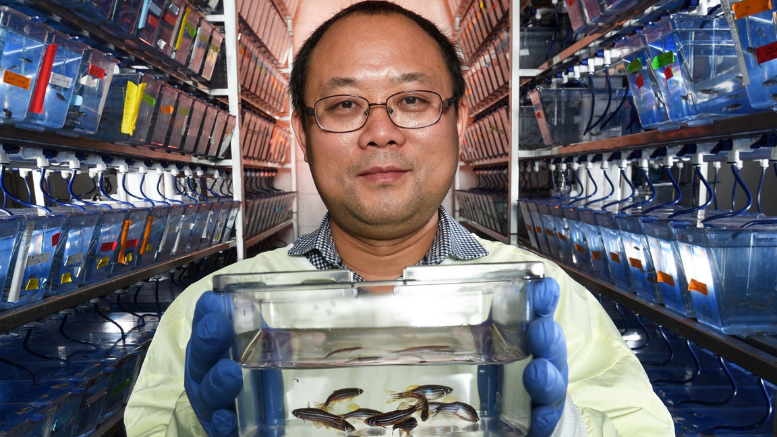After a heart attack, cardiac muscle cells die because they are deprived of blood and oxygen. In newborn babies, as well as in adult fish, the heart can regenerate after injury. Why can’t the human heart be more fishy? Jinhu Wang, MD, assistant professor in the Division of Cardiology, is seeking answers, which could guide the development of regenerative therapies.
Wang hopes his study “can help find better sources for cell therapy for heart failure and develop better methods for drug delivery in patient care.”
Watch the below video for a closer look at his fish room and innovative research. Click here to read the full story in Emory Health Digest.


Be the first to comment on "Zebrafish: mini-monsters of cardiac regeneration"